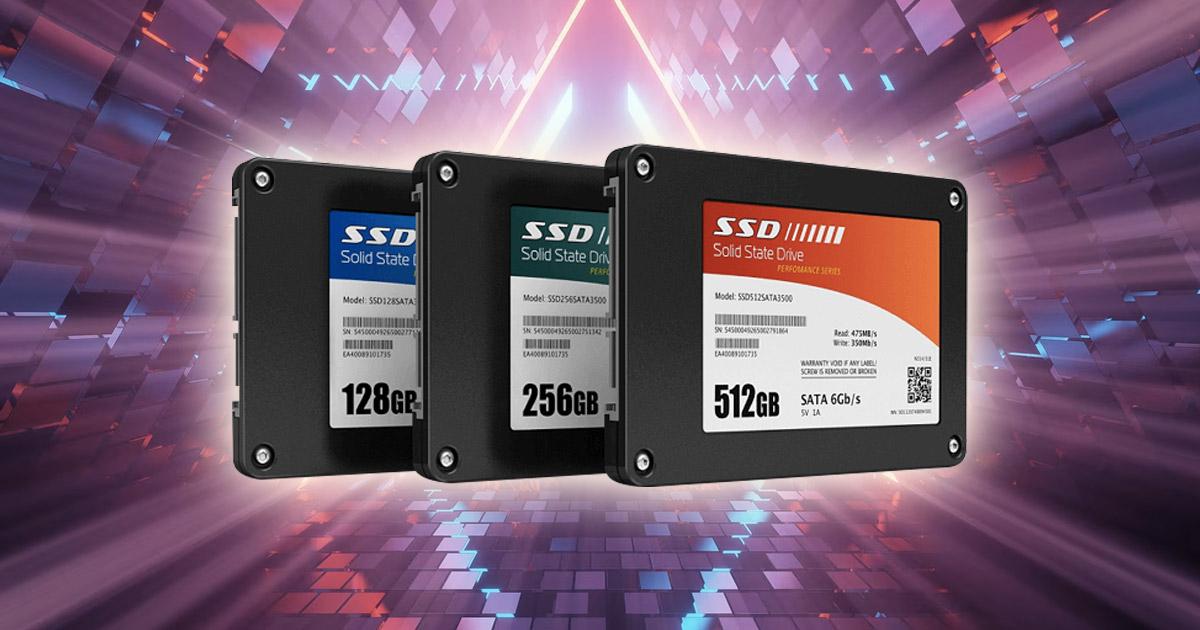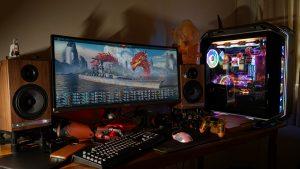How Much Storage Should A Gaming PC Have? How To Increase It?

Building a gaming PC is a thrilling journey for any gaming enthusiast. From selecting the perfect graphics card to choosing the most powerful processor, every component is carefully selected to ensure a seamless gaming experience. A significant query that frequently emerges in this process is: How much storage should my gaming PC have? Striking the right balance between storage capacity and performance is vital for any gamer’s configuration. In this article, we will explore the importance of having a good amount of storage for a gaming PC and guide you in determining the ideal storage capacity to maximize your gaming pleasure.
Why A Good Amount of Storage is Needed on A Gaming PC?
Before delving into the specific storage capacities, let’s understand why having a good amount of storage is essential for a gaming PC. Modern video games have evolved significantly, not only in terms of stunning graphics but also in terms of file sizes. AAA titles and open-world games can easily occupy tens of gigabytes or even surpass the hundred-gigabyte mark. Having sufficient storage space ensures that you can install and enjoy multiple games without constantly needing to uninstall and make space for new ones.
Furthermore, storage space is not just about games. Gamers often use their PCs for other multimedia activities, such as storing music, videos, and other files. Having extra storage capacity allows you to keep your media library and other important files readily accessible without compromising on gaming space.
Is 500GB Good Enough for a Gaming PC?
So, how much SSD do I need for gaming? A 500GB storage might seem like a good starting point but it depends on individual preferences and gaming habits. For some gamers who mainly play smaller indie games or have a limited number of games installed at a given time, a 500GB SSD might be sufficient. However, as modern AAA games continue to grow in size, a 500GB SSD may quickly fill up, leaving limited space for other essential files.
If budget constraints are a concern, a 500GB SSD can be a practical starting point for your gaming PC. You can always upgrade or expand storage in the future by adding more SSDs or opting for an external HDD to supplement your storage needs.
How Much Storage is Good for A Gaming PC?
The optimal storage capacity for a gaming PC depends on several factors, as discussed below:
How Many Games Do You Wish to Have Installed at a Given Time?
Consider how many games you typically play simultaneously. If you like to have a diverse collection of games available without frequent uninstallations, you may need a larger storage capacity. For gamers who prefer only a few games at a time, a more modest storage size might suffice.
How Large are the Games You Play
The size of the games you play is crucial in determining storage requirements. AAA titles can easily surpass 50GB to 100GB or more, whereas indie games are generally smaller. Consider the types of games you enjoy and factor their sizes into your decision-making.
Archiving and Other Work
If you use your gaming PC for more than just gaming, such as multimedia editing or content creation, you may require additional storage space. Archiving large files and projects can quickly eat up storage, so it’s vital to consider your work-related storage needs as well.
Your Overall Budget for the Gaming Build
Storage capacity also influences your budget decisions. If your budget allows, opting for a larger SSD or combining a smaller SSD with a secondary HDD can provide a balanced and cost-effective solution.
Is It Possible to Increase Storage Space?

Yes, it is entirely possible to increase storage space on your gaming PC. As technology continues to advance, modern gaming PCs are designed to be versatile and easily upgradable, including their storage capacity. If you find that your current storage space is running low or you simply want to have more room for your expanding gaming library, there are several options available to increase storage space on your gaming PC:
Add More SSDs – Most gaming PCs have multiple storage slots, such as M.2 and SATA ports, allowing you to add additional SSDs. You can install a new SSD alongside your existing one, effectively doubling your storage capacity. This can be an excellent option if you want to keep your gaming experience seamless without compromising on loading times and system responsiveness.
Upgrade to Higher-Capacity Drives – If your gaming PC has removable SSDs or hard drives, you can opt to upgrade to higher-capacity versions. For example, if you currently have a 500GB SSD, you can replace it with a 1TB or even a 2TB SSD to accommodate more games and files. Upgrading your existing drive is a straightforward process and can be done without much hassle.
External Storage Options – External storage solutions, such as external SSDs or HDDs, provide an excellent way to expand storage without opening up your gaming PC. You can connect external drives to your PC through USB or Thunderbolt ports, and they function just like internal drives. This option is ideal for those who need extra storage but don’t want to tinker with the internals of their gaming rig.
Network-Attached Storage (NAS) – For gamers who require extensive storage for archiving files or running a home media server, a NAS device can be a valuable addition. NAS devices connect to your network and provide a centralized storage solution accessible by multiple devices, including your gaming PC. This option is particularly useful if you have a large media collection or want to create backups of your gaming data.
Large Storage is Needed for A Gaming PC
In conclusion, having a good amount of storage is vital for a gaming PC to fully enjoy the gaming experience. While 500GB might be sufficient for some, a larger storage capacity, such as 1TB or more, provides the freedom to explore a broader selection of games and seamlessly manage other files.
Balancing your storage needs with your budget is crucial. A larger storage capacity ensures that you can future-proof your gaming PC and enjoy uninterrupted gaming bliss. Whether you start with 500GB and expand gradually or opt for a larger capacity from the outset, investing in sufficient storage ensures that your gaming journey remains exhilarating, immersive, and trouble-free.

